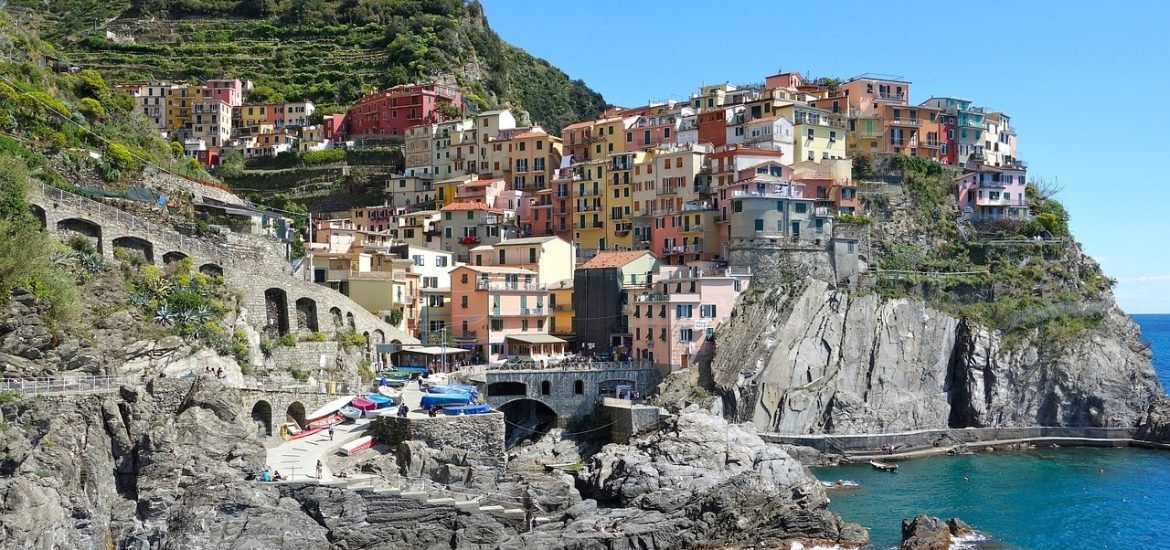
Rocky coastlines are not as stable as previously believed and could retreat rapidly in the future due to accelerating sea level rise, according to a study published in the scientific journal Nature Communications.
A team of researchers from Imperial College London modelled the rates of future cliff erosion that are likely to happen in two rock coasts in the UK. The model uses predictions of sea level rises due to various greenhouse gas emissions and climate change scenarios.
Results show that rock coasts — usually considered more stable than sandy coasts and soft cliffs — are going to retreat at rates higher than in the past 3000-5000 years. At the two locations in Yorkshire and Devon, this may cause losses of up to 10-20 metres. This is the equivalent of three to seven times today’s rate and may potentially reach ten times more.
“Coastal erosion is one of the greatest financial risks to society of any natural hazard. Some rock cliffs are already crumbling, and within the next century, rock coast erosion rates could increase tenfold. Even rock coasts that have been stable in the last hundred years will likely respond to sea level rise by 2030,” said author Dr. Dylan Rood of Imperial’s Department of Earth Science.
Around the world, rocky coastlines are home to millions of people and are involved in billions of dollars of infrastructure, such as homes, schools, businesses, and agriculture. From these results, the authors are calling on policymakers and planners to classify rocky coasts are high-risk in any future plans, as well as to fight climate change by going for Net Zero as an immediate priority. “Rock coast erosion is irreversible: now is the time to limit future sea level rise before it’s too late. Humanity can directly control the fate of our coastlines by reducing greenhouse gas emissions — the future of our coasts is in our hands,” added Dr. Rood.
This is the first study to assess the expected erosion of hard rocks caused by rising sea levels due to climate change. Previous models mostly use soft and sandy coastlines to account for erosion, but these results suggest that if sea levels continue to rise, rock coasts will also suffer severely from erosion. These findings apply to rock coasts anywhere in the world because similar hard rock coasts are likely to respond in a similar way to sea level rise.
“Sea level rise is accelerating, and our results confirm that rock coast retreat will accelerate in line with this. It isn’t a matter of if, but when,” said lead author Dr. Jennifer Shadrick, originally from the Department of Earth Science and Engineering as a member of the NERC Science & Solutions for a Changing Planet Doctoral Training Partnership. “The more positive news is that, now that we have a better idea of magnitudes and timescales, we can adapt accordingly. The more data we have on the effects of climate change on sea level rise and coastal erosion, the more we can prepare by championing urgent policies that protect coasts and their communities.”
This study also confirmed that the rate of past coastal erosion followed the rate of sea level rises over prehistoric timescales. Erosion is driven by waves which will get more forceful as sea levels rise and more land is given over to the sea. However, this study did not account for the impact of storms, which many climate models suggest will happen more frequently in the future. In addition, the team is keen to adapt their model to also forecast the rate of cliff retreat for softer rock coasts, such as chalk.
“Our study did not account for the effect of increased storms, which may become stronger and more frequent in the future as the climate changes, on wave-driven cliff erosion. However, increased storms would only speed up the cliff retreat even more than our forecasts. This is another angle to the climate crisis we will account for in future studies to give a more complete picture of likely rates of rock coast erosion. We are also looking to improve our models for softer rock coasts where erosion other than by waves is more important,” said Dr. Rood.
“The implication is that rock coasts are more sensitive to sea level rise than previously thought. We need to pay more attention to how our rock coasts continue to erode as sea levels rise,” concluded study co-author Dr. Martin Hurst at the University of Glasgow. “Heightened erosion risks at our coasts will continue throughout this century. Even if we achieve Net Zero tomorrow, a substantive amount of sea level rise is already baked in as our climate, glaciers, and oceans continue to respond to the emissions that have already taken place.”
Shadrick, J.R., Rood, D.H., Hurst, M.D. et al. Sea-level rise will likely accelerate rock coast cliff retreat rates. Nat Commun 13, 7005 (2022). https://doi.org/10.1038/s41467-022-34386-3